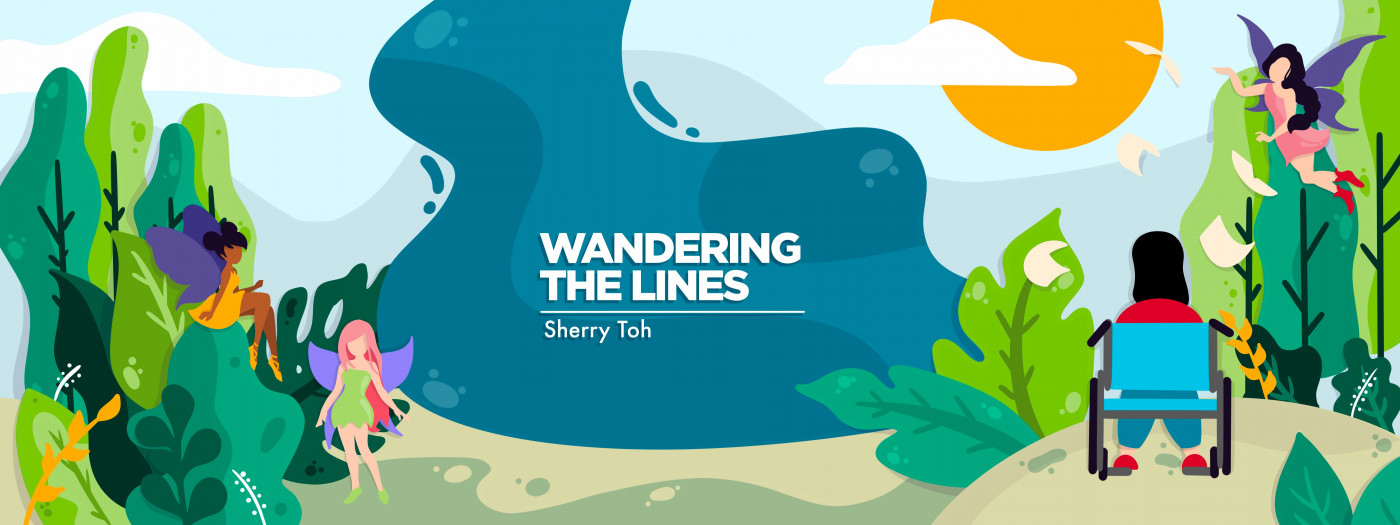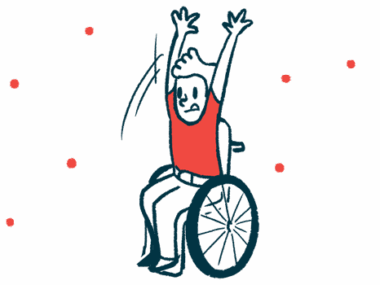Finding myself in a time warp again (no, not that one)
Living through what disability scholar Ellen Samuels calls 'crip time'
Written by |

It’s been three years since COVID-19 lockdowns were implemented around the world. When that happened, time seemed to grind to a halt as the world intently followed the latest public health announcements. Plans were ripped apart as businesses all around us were shuttered.
Three years later, as we’re still learning to live in the era of COVID-19, it feels like we’ve jumped ahead in time. 2021 and 2022 were like a fever dream.
When the pandemic hit, I was among the disabled whose day-to-day living already required self-isolation at times because of my SMA. That meant my life carried on as usual and time kept ticking. But those who had their “normal” lives disrupted witnessed new digital infrastructures being built to facilitate the continuation of certain aspects of their lives — school, work, family gatherings, you name it. Incidentally, those same infrastructures have helped disabled people catch up to our peers.
Today, as the world enters a “new normal,” my life is the one being disrupted. Lately, I’ve been feeling time in a peculiar way that didn’t happen during the pandemic. It’s like “the world spins around while I’m frozen to my seat,” to borrow a line from the Broadway musical “In the Heights.”
Wandering into the disquieting unknown
January to March was a whirlwind for me. It was my column’s second anniversary, I had a fulfilling social life, I published four big gaming articles, and I had a book launch. I attended a writing program for aspiring video game writers, and I trained new caregivers. On top of that, I finally had medical assessments done to ascertain how far my SMA has progressed in case I manage to crowdfund enough money for a year’s worth of Evrysdi (risdiplam), a disease-modifying therapy that could halt my deterioration. My entire life was full-steam ahead.
Now that winter is making room for spring, I should be looking forward to my next life-changing adventures. But the momentum I recently had has come to a screeching halt.
I’m cheering on those around me who’ve achieved great milestones and moved forward in trying new things. SMA’s progression in my body, and my efforts to end it, carry on. But apart from that, I’m lying in bed, trying to fill time with whatever I can. My desk has no work or learning assignments on it. My social calendar is empty. That’s because I knew that to be rested and ready to raise the necessary money for my Evrysdi treatment, I needed to reserve as much emotional and physical energy as I could.
I don’t know what to do with that. I feel like I should be emailing gaming publications instead of envying other writers for receiving recognition and job offers. But I’d run the risk of becoming distracted and burning out from writing and advocacy if I found myself suddenly speaking to local news outlets about the annual funding I need for a drug to treat my rare disease.
On the other hand, as I write this, my crowdfunding effort is sitting at about 5,300 Singapore dollars (about $3,970) while my goal is SG$375,000 (about $280,900), and I’m wondering if I’m wasting my time. Right now, I can’t afford even a single bottle of the drug.
‘We gotta move on’
As disability scholar Ellen Samuels writes in her essay “Six Ways of Looking at Crip Time,” “Disability and illness have the power to extract us from linear, progressive time with its normative life stages and cast us into a wormhole of backward and forward acceleration, jerky stops and starts, tedious intervals and abrupt endings.”
Sometimes that means you’re hospitalized at age 8 while your friends are working to get good grades in school, which, as our Singaporean parents tell us, is key to changing the course of our lives. Other times, it means being 15 and feeling lonely as everyone around you finds romantic love. Or going through a pandemic at 21. Or deciding at 24 that you need to prioritize raising awareness about SMA and your health over your career dreams.
So now, like the people who felt the shocks of the COVID-19 pandemic, I’m finding TikTok videos to watch, books to read, art to make, and games to play as a means of coping. Who knows, maybe something can grow from this little bubble of warped time?
I’m hopeful — partly because, after sitting with my thoughts, I’m reminded that not experiencing time in a linear manner is just part of the human experience.
As far as I know, Lin-Manuel Miranda and Quiara Alegría Hudes weren’t disabled when they co-wrote “In The Heights.” (Miranda wrote the music and lyrics while Hudes wrote the book.) While the musical was primarily for Hispanic and Latinx Americans, its message of living the life you want despite facing marginalization resonates across other cultures and demographics.
There’s solidarity in knowing that we share common experiences, despite different social realities. And more than that, in knowing that we’ll all move forward someday, step by step, second by second.
Note: SMA News Today is strictly a news and information website about the disease. It does not provide medical advice, diagnosis, or treatment. This content is not intended to be a substitute for professional medical advice, diagnosis, or treatment. Always seek the advice of your physician or other qualified health provider with any questions you may have regarding a medical condition. Never disregard professional medical advice or delay in seeking it because of something you have read on this website. The opinions expressed in this column are not those of SMA News Today or its parent company, Bionews, and are intended to spark discussion about issues pertaining to spinal muscular atrophy.





Leave a comment
Fill in the required fields to post. Your email address will not be published.